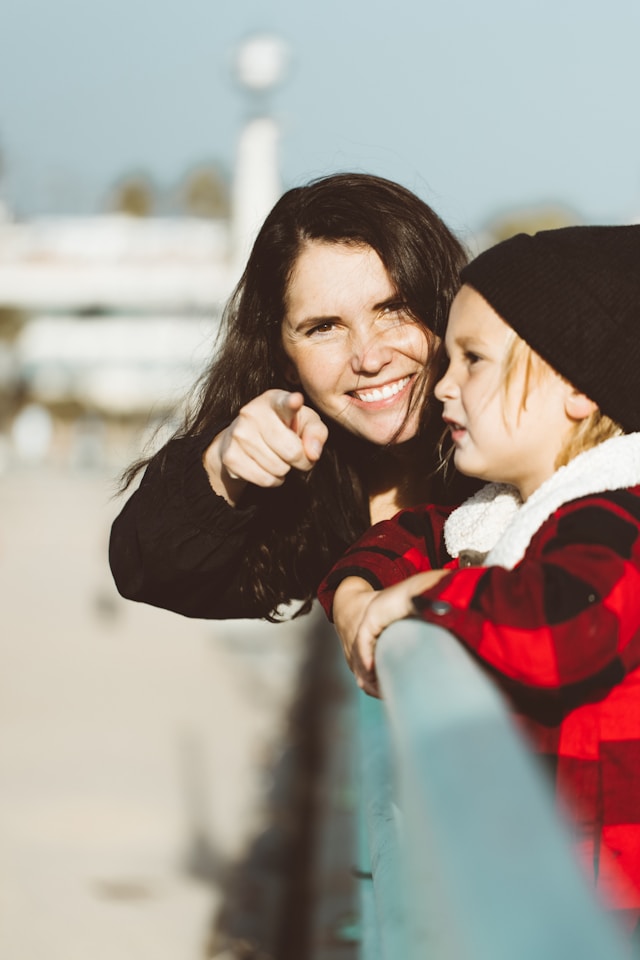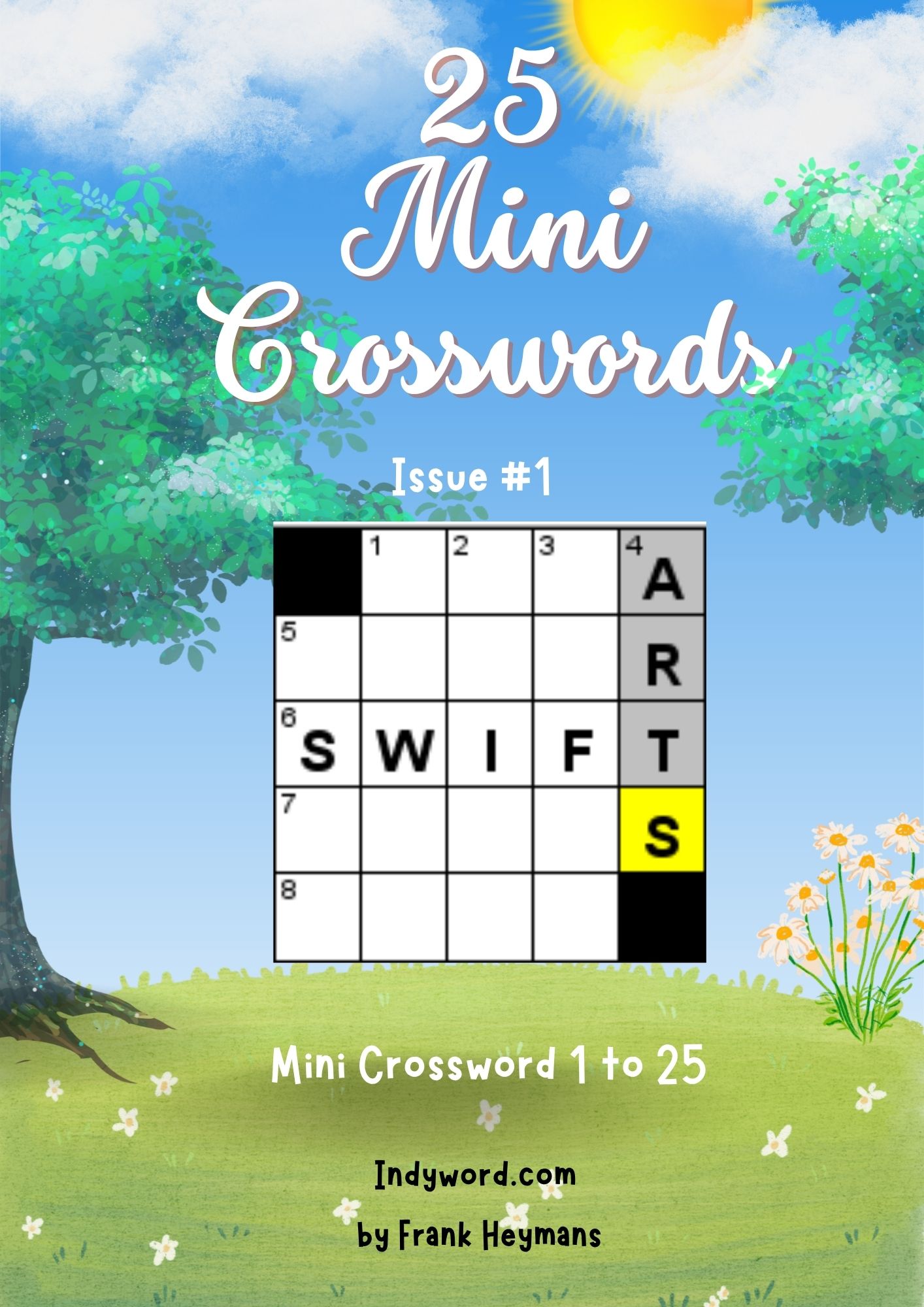- Home
- Crosswords Index
- Mini Crossword Six
Bookmark this page - Use keyboard short-cut: Ctrl+D - For Your Benefit
Advisory
Use the Google Chrome web-browser to play the interactive crossword puzzles displayed on Indyword.com.
Specially when you are using a mobile device, like a smartphone or tablet.
Mini Crossword Six
Mini Crossword Six
When you sign-up for the Indyword Crossword Puzzle Newsletter, you will be able to download a free copy of the "30 Easy Free Printable Crosswords" e-book. You will receive the link in the e-mail which I send you, to thank you, after we receive your confirmation. Sign up it's only a click away and takes just a minute!
Do You Have Feedback About This Crossword?
Do you have feedback or comments about this crossword? Share it!
Short Story - A Quiet Morning Ride
A Quiet Morning Ride
Mum always had a way of making the simplest things feel like rituals. Not ceremonies with candles and hymns, but everyday things — setting a tray down at breakfast, folding laundry, or even waving me off at the gate when I went cycling as a boy.
I can still picture her now, though the years have carried me far from those mornings: the soft shuffle of slippers, the clink of a cup set gently onto a tray, the faint hum of some tune she never quite finished.
It was one of those mornings, years later, when I had returned home for the first time in too long, that the memory came back in full.
I’d woken early, the way I always do when I’m back in the village. The air was crisp and quiet, the kind of quiet that’s almost a sound in itself. I slipped out of bed, pulled on an old jacket, and went outside to fetch the bicycle from the shed. The metal was cool beneath my fingers.
I hadn’t planned the ride. It was more that something in me stirred — a rider’s urge to move, to drift along the old roads that knew me better than I knew myself. The same roads where Mum used to wave as I disappeared around the bend.
As I pushed the bike out, I heard the door behind me creak.
“Mum,” I whispered, almost laughing to myself. She wasn’t there, of course. The house had been empty for nearly a year now, since she’d passed. Still, in the morning chill, I could almost imagine her voice, soft and steady: Go on then, take the ride. These mornings are yours to keep.
The wheels hummed on the road as I began to pedal. It was easy, the way memory makes things easy. The path wound past the hedges, past the little stream where dragonflies sometimes gathered. Everything looked the same, yet different. Fields had changed owners, some cottages had new paint, but the air — that stayed.
It wasn’t long before I reached the rise in the hill, the one that had always slowed me down as a boy. My legs ached, but I welcomed it. The ache reminded me of all the times I’d pushed to the top, only to see Mum’s figure waiting at the bottom of the lane when I coasted back down, her apron flapping lightly in the breeze.
Back then, she’d always say the same thing when I came through the gate again:
“Yea, you’ve gone and made the hill your own, haven’t you?”
Her voice would hold both pride and playfulness, as if she wasn’t sure whether to scold me for being reckless or cheer me for being stubborn.
The village was still half-asleep. Curtains drawn, smoke curling lazily from a chimney or two. A newspaper boy rode past me, and for a moment, I caught the sharp scent of ink. That smell always reminded me of Mum too, because she used to cut little pieces from the paper and pin them to the kitchen board — recipes, clippings of village events, sometimes even a line or two of poetry she liked.
Funny how the media, in all its vastness, had been for her a quiet, personal thing. Not a flood of headlines or noisy arguments, just small treasures she chose and kept. She never used it for noise, only for connection.
I rode further, letting the cool air sting my cheeks. The road dipped and curved, carrying me toward the church. Bells weren’t ringing yet, but I could picture them. And with the image came another memory — Easter morning, years ago. I must’ve been seven. Mum had taken my hand as we walked up to the service, and I remember her whispering to me, Arise, and see how the light changes everything today.
It wasn’t about religion, not really. It was about noticing. She had a way of noticing light, sound, taste — as if life wasn’t to be rushed but gently unfolded.
At the far edge of the village, I slowed. A farm dog barked at me, tail wagging furiously. I laughed and raised a hand in greeting. And then, unbidden, a thought came:
What would Mum say if she were here now?
Probably something simple, something that seemed mere at first glance but carried weight once it sank in. That was her gift — saying little, but meaning much.
I stopped by a low stone wall and set my bike against it. Beyond, fields stretched wide, washed in the pale gold of morning sun. I closed my eyes for a moment, breathing it all in.
A bird trilled. Dew still clung to the grass. Somewhere, far off, a tractor engine started.
And there it was again — that quiet, tender ache of memory that isn’t sorrow but something softer. Something closer to gratitude.
When I returned home, I half expected the house to feel emptier, but it didn’t. Instead, stepping inside, I was greeted by the faint smell of tea leaves — I’d left them out the night before. Sunlight spilled through the kitchen window.
I set the kettle on, and without thinking, I reached for a tray.
It was chipped at the corner, the same one Mum had used for decades. I placed a cup on it, a slice of bread, a little dish of jam.
And suddenly, it felt as though the cycle of memory and morning had turned whole again. As though she were there, guiding my hands, reminding me that even the smallest acts — a tray at breakfast, a wave at the gate, a clipped poem — carry more love than grand gestures ever could.
Later that day, when neighbors stopped by, they asked if I was planning to stay long, or if work would call me back soon.
I thought about the word “hire,” about the endless rotations of jobs, deadlines, and demands. All the uses of my time that the world seemed eager to claim.
But I also thought about this morning — about the ride, the rise of the hill, the memories stitched into quiet places.
And I said, simply, “For now, I’ll stay a while.”
Because sometimes, the happiest stories don’t arise from grand adventures or sudden changes. Sometimes they’re found in the way sunlight rests on a table, in the way a bicycle wheel hums against a road, in the way a mother’s voice lingers long after she’s gone.
Mum had shown me that long ago. And now, as I lifted the tray and carried it carefully to the table, I knew I was still learning it — still carrying it with me, every morning, every ride, every quiet breath of home.
Links to Crossword Books:
Indyword - Best Sellers in Crossword Puzzles - Click here
Indyword - Best Sellers in Crostic Puzzles- Click here
Indyword - Best Sellers in Cryptic Puzzles - Click here
Indyword - Best Sellers in Puzzle Dictionaries - Click here







